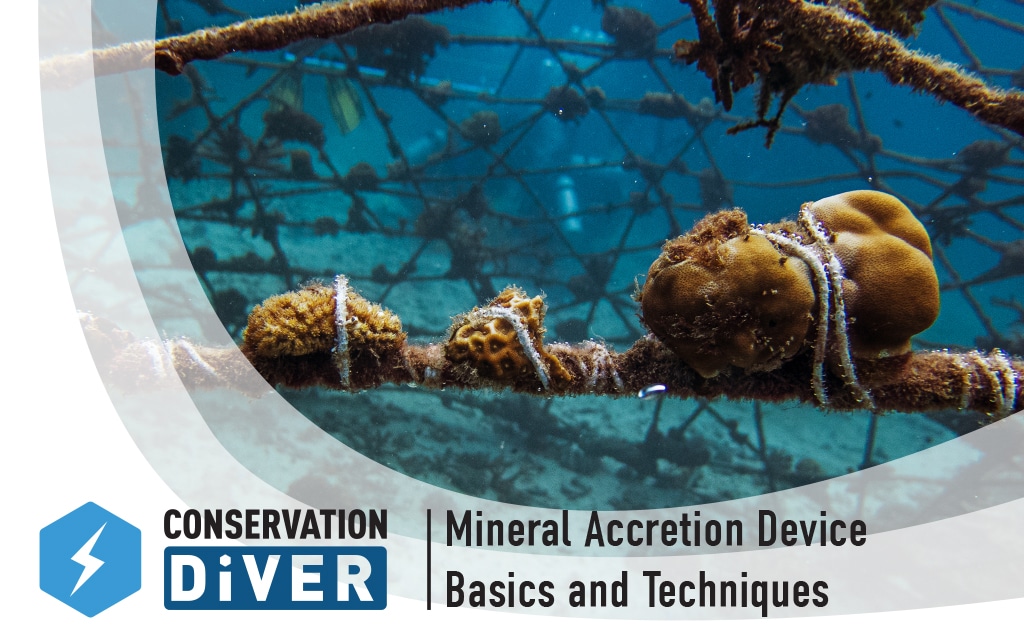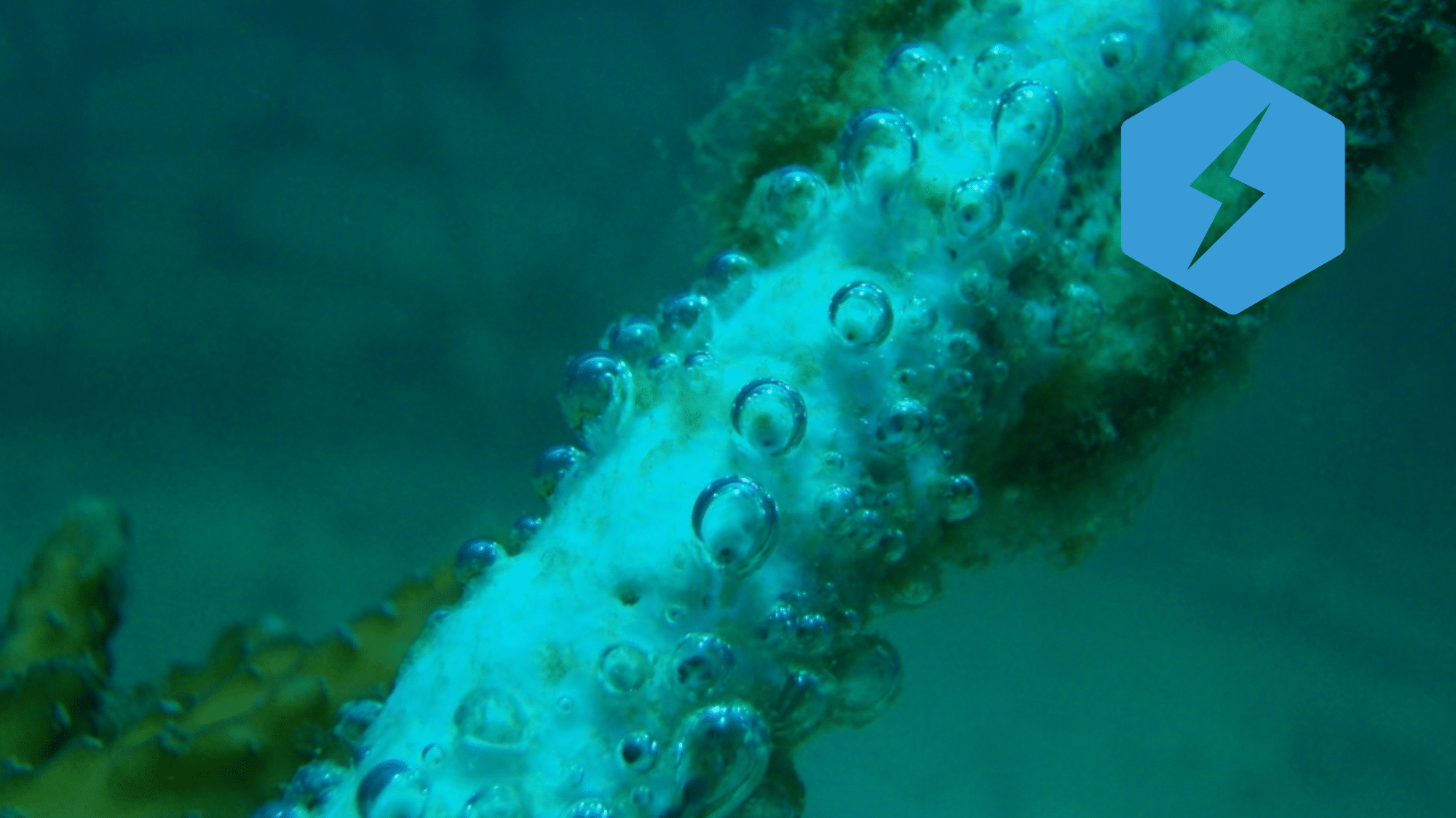Mineral Accretion Technology
Mineral Accretion Technology Basics & Techniques

The Mineral Accretion Technology Basics & Techniques Course is designed to give students an introduction to the impacts of climate change on coral reefs around the planet, and also on tools that can be used to protect corals in the face of bleaching events. The course teaches students the basics of ocean chemistry, sea water electrolysis, and the construction/maintenance of low-voltage mineral accretion devices.
https://youtu.be/lsEImageYus
Prerequisites
- Be 12 years of age or older
- Be certified as an Advanced diver under a leading diving organization (PADI, SSI, RAID, etc) or an Open Water diver who has satisfactorily completed a buoyancy appraisal with a professional diver
- Demonstrate proper diving ability at an advanced Level and be proficient in buoyancy and self-awareness
- Be certified in our Ecological Monitoring Program and the Artificial Reef Theory and Techniques courses
Standards
- Understand the global effects of climate change on coral reefs
- Understand various techniques utilized by reef managers to manage reefs in the face of climate change
- Learn about ocean chemistry and the relationship between ocean pH and reef growth
- Learn about low voltage sea water electrolysis, and the benefits such technology can have for coral restoration and protection projects
- Learn how to construct and maintain a mineral accretion device
- Practice coral restoration and site maintenancen at a mineral accretion device artificial reef
Requirements
- Attend the lecture on climate change impacts to coral reefs, and mineral accretion devices
- Visit a mineral accretion device for data collection, monitoring, and maintenance
- Complete and pass the written exam
Expected course time about 9 hours
Certification Card


